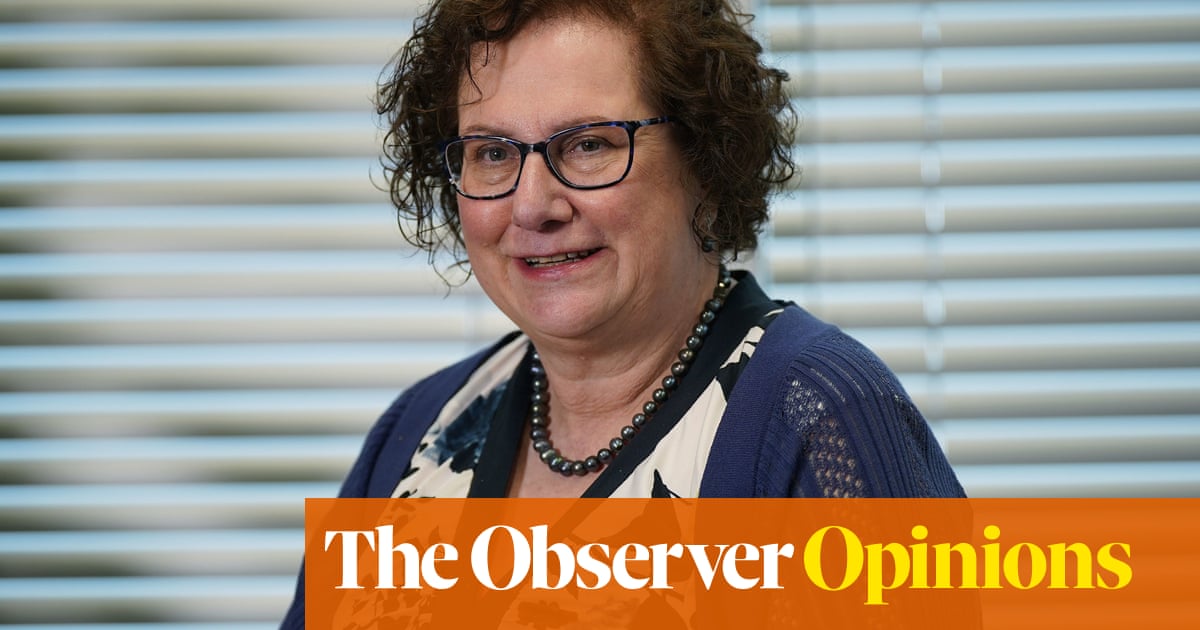
“First, do no harm” is the sacred principle that is supposed to underpin modern medicine. However, there are numerous instances of medical professionals breaking this rule. The release of Hilary Cass’s final document on healthcare for gender-questioning children last year highlighted the devastating range of NHS failures affecting a vulnerable group of children and young people. These failures were exacerbated by activists who bullied anyone questioning a treatment model based more on ideology than evidence.
Cass, a well-known pediatrician, spent four years meticulously assessing the situation. She describes how the now-closed NHS professional gender clinic for children abandoned evidence-based treatments for unproven methods. A significant number of gender-questioning children—impossible to quantify accurately due to the clinic’s lack of records, itself a scandal—were put on a path of puberty-blocking drugs and/or cross-sex hormones despite the risks to brain development, fertility, bone density, emotional health, and adult physical functioning.
What drove this? The medical pathway is based on the assumption that many children questioning their gender will develop a fixed transgender identity in adulthood, and that it’s possible to distinguish them from those experiencing a temporary phase. However, research suggests that gender dysphoria naturally resolves in some children. It’s often associated with neurodiversity, mental health issues, childhood trauma, puberty discomfort (particularly in girls), and children processing emerging same-sex attraction—indeed, a significant number of children referred to the Gender Identity Development Service (GIDS) were gay. Placing these children on a medical path not only poses health risks but may also prolong temporary distress. Cass makes it clear that medically transitioning a child is a profound intervention with potentially long-lasting effects and insufficient evidence to support it. Additionally, she suggests that transitioning in prepubertal children may be risky and should involve input from appropriately trained clinicians.
The central issue raised by the report is uncertainty. Case studies show that diagnosing a child with gender dysphoria is an inadequate predictor of a persistent transgender identity, and clinicians told the review that predicting the duration of gender dysphoria in children is challenging. If so, is it humane to subject a young person to a life-altering medical pathway? What evidence would clinicians rely on if there were no objective diagnostic criteria aside from professional judgment?
The report recommends a complete overhaul of the NHS’s approach to caring for gender-questioning children and young people, including holistic, multidisciplinary services based on mental health that explore the root causes of gender questioning and prioritize therapeutic interventions. One would expect this to hinge on the development of diagnostic criteria for gender dysphoria lasting into adulthood because puberty blockers will only be prescribed as part of an NHS research trial.
Cass’s aim is for gender-questioning children to receive equitable care, not to appease activists seeking validation of their adult identities and beliefs. However, realizing this vision will be incredibly challenging for the NHS, not only due to the dire underfunding of child mental health services but also because clinicians with conservative views may resist a study that sheds light on the patients the NHS treats as children. It’s astonishing that six out of seven adult clinics have declined to participate. One senior NHS researcher at a trust informed me that some clinicians in their service feared repercussions, which was unheard of in other parts of the NHS.
Cass has also warned about the intense toxicity of the debate. In a climate where activists and organizations like Stonewall quickly vilify dissenters and NHS whistleblowers face backlash, medical professionals are apprehensive about being labeled transphobic or accused of practicing conversion therapy. This will make recruiting clinicians for the new service even more challenging. Cass has cautioned ministers about the risks of the proposed criminalization of conversion therapy, the definitional ambiguities that could lead to the criminalization of exploratory therapy, and potential backlash from doctors. The former CEO of Stonewall has already branded the Cass model as conversion therapy.
Given its implications for social transition, the Cass review extends beyond the NHS to schools and children’s services, where ideological capture is also evident. Parents of one child, whose school facilitated their social transition without their consent, have two weeks to demand the withdrawal of the approved “trans toolkit” used across all schools. Otherwise, they face legal action, as advised by leading equality and human rights lawyer Karon Monaghan KC, who deemed the toolkit unlawful and warned schools against its use.
The Cass review is a significant achievement as it restores evidence-based medicine’s role in one of its most contentious areas. However, there is still much work to be done to counter the influence of adult ideologies on how children are supported by the NHS, children’s services, and schools.
Sonia Sodha is an Observer columnist.
Do you have any opinions on the issues addressed in this article? If you would like to submit a letter of up to 250 words for publication consideration, please email us at [email protected].



